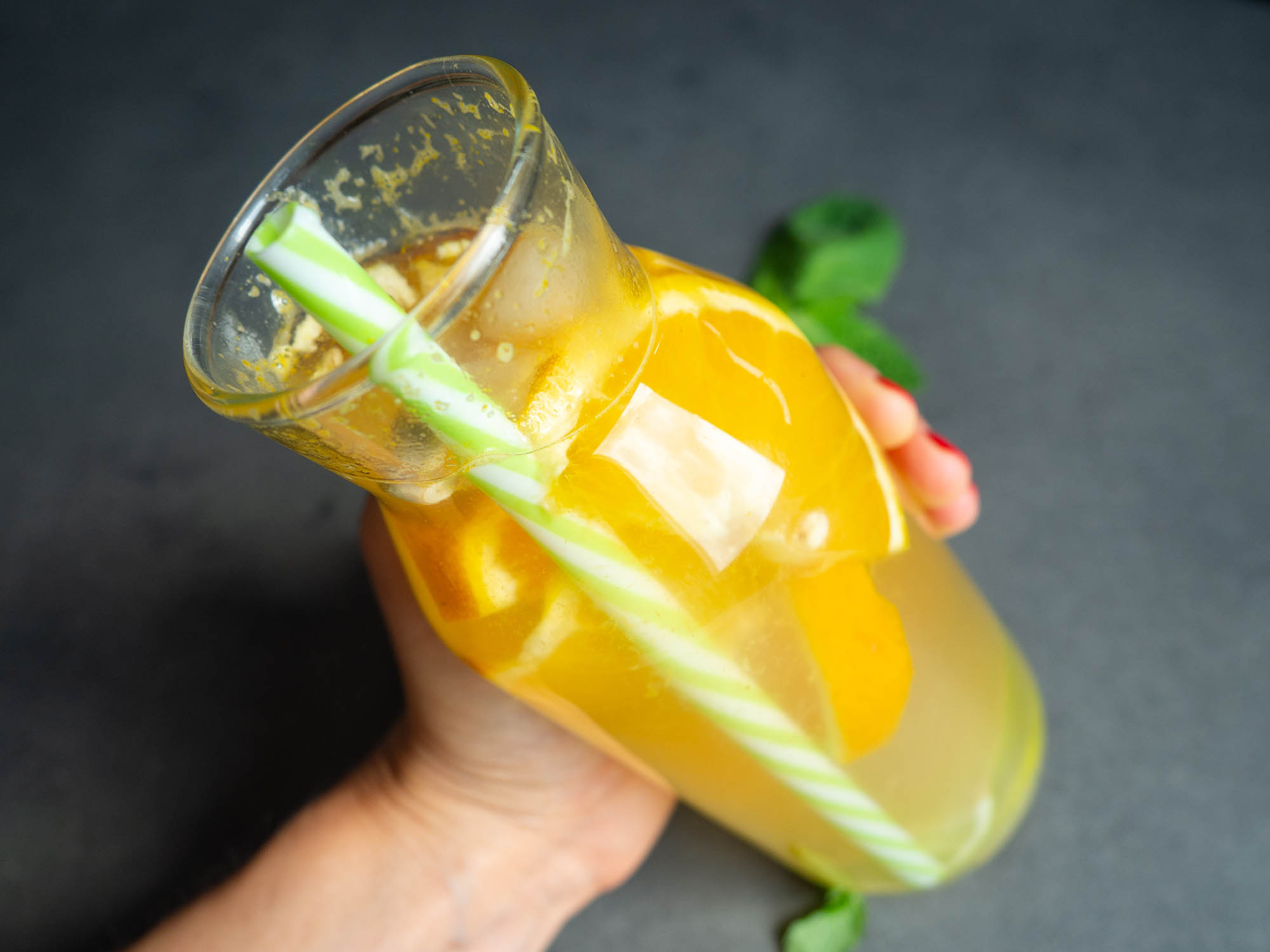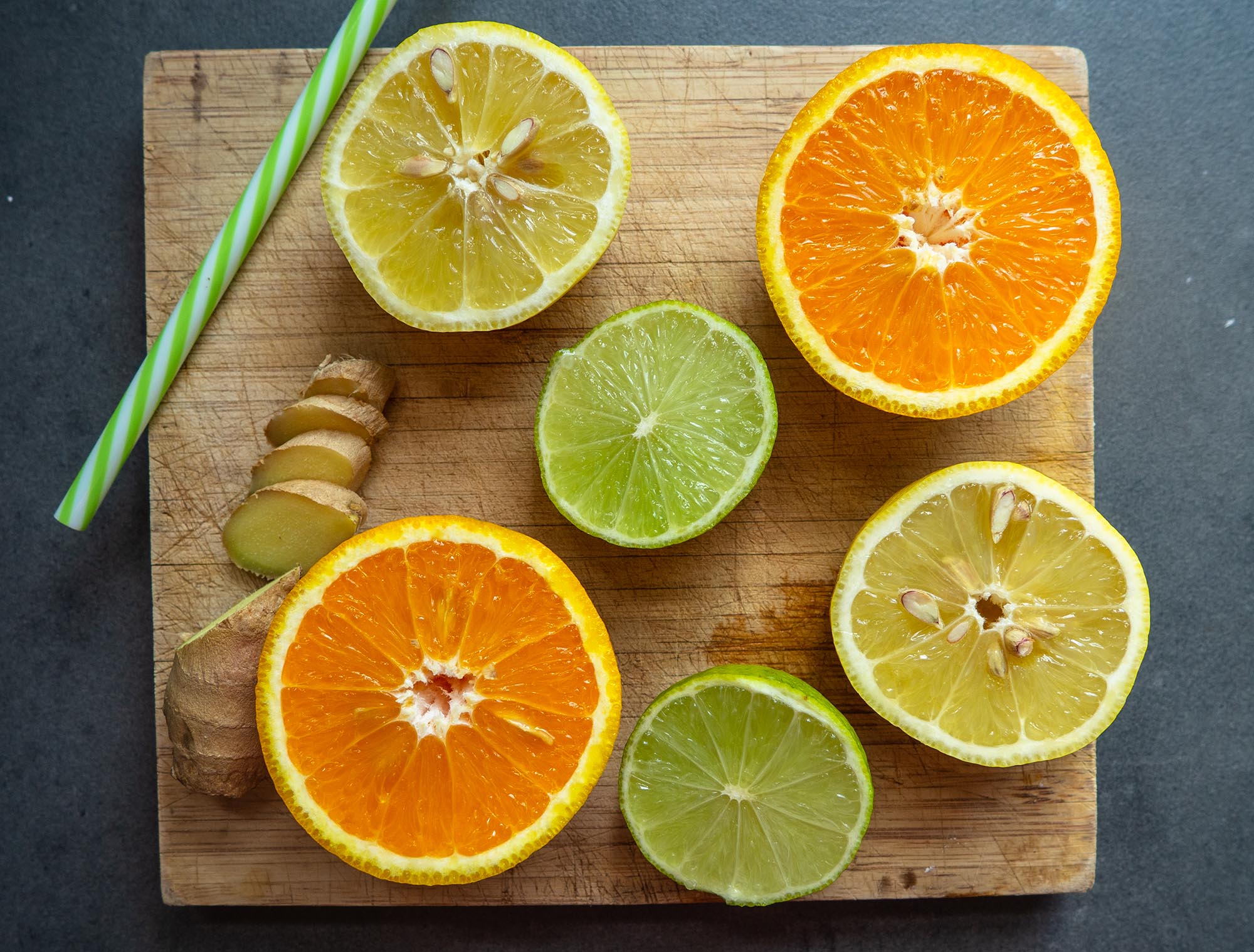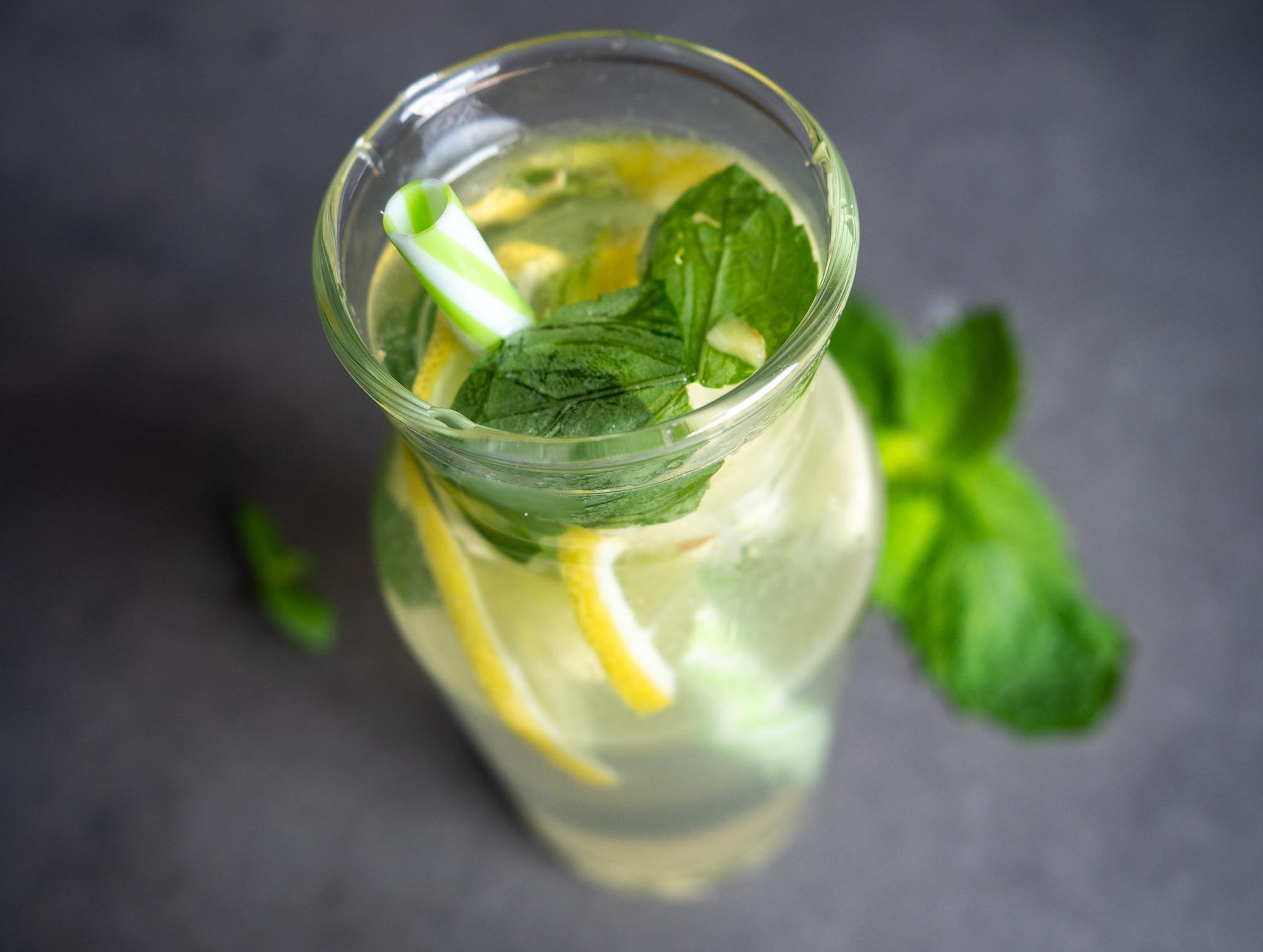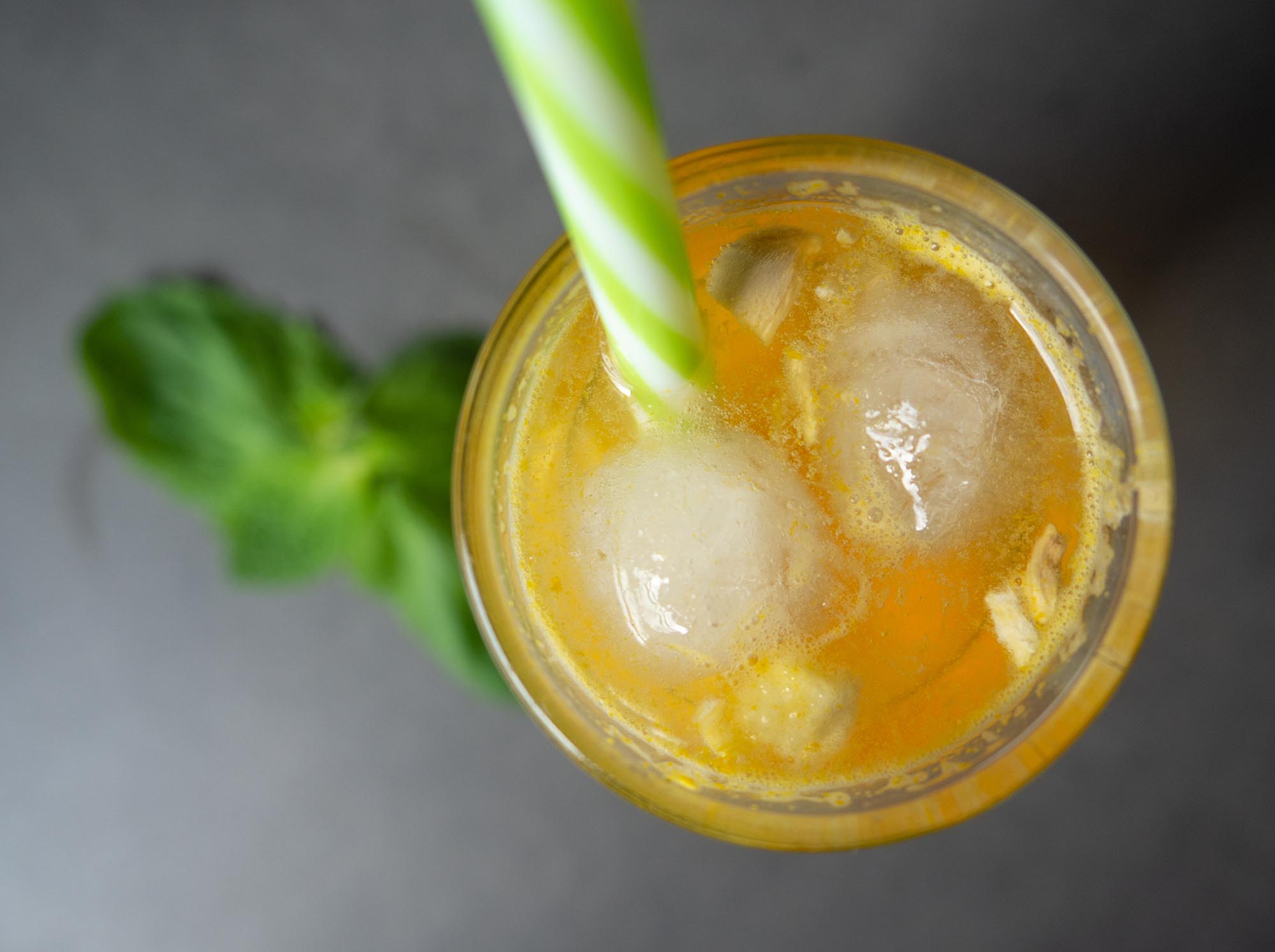How to Make Sports Drinks on Your Own?
1. What Does Isotonic Drinks Contain?
2. Isotonic – for Whom?
3. Ready Sports Drinks Vs. Homemade Sports Drinks
4. Recipes
5. Conclusion

During the intense physical effort, collectively with sweat, we lose a lot of vitamins and minerals such as sodium, potassium, chlorine, magnesium, and calcium. The best way to supplement them is to drink Sports Drinks (isotonic drinks). What exactly do we mean by isotonic drink? It is a fluid in which concentration (osmolarity) is the same as the body fluid concentration in your body. Thanks to that, it quickly and effectively allows us to hydrate the body. In addition to water, isotonic drinks contain a large number of vitamins and minerals, thanks to that (if they drink directly after intense training), they can equalize the level of microcomponents.
What Does Isotonic Drinks Contain?
In addition to the above-mentioned water, in sports drinks we can find sodium (from 0.3 – 2 g per 250ml of water), which is responsible for proper absorption of water. It is also important in maintaining electrolyte balance and is responsible for maintaining the correct body temperature. The next ingredient is potassium (15 – 90 mg). It participates in many processes responsible for the proper functioning of the muscular and nervous system. It is worth to mention about calcium and magnesium here. The first is a key building component of our muscles and bones, while the second supports the functioning of the heart muscle.
Isotonic drink composition also contain easily digestible carbohydrates, such as fructose, maltose, sucrose or maltodextrin. Carbohydrates together with sodium increase water absorption. An effective sport drink contain 6-8% carbohydrates (about 15g per 250 ml of liquid).
Isotonic – for Whom?
Regularly training, we wonder if we should drink sport drinks, how often and which one will be suitable for us. Certainly, drinking isotonic drinks is not for everyone. People whose training session lasts less than an hour (for example, strength training, practicing aerobics, swimming or running) only need fluid replenishment, preferably just water. There is no need to top up electrolytes or carbohydrates.
With an effort of 1-3 hours (for example, football, cycling, longer running), it is necessary to provide carbohydrates in addition to water. This prevents overheating of the body and a decrease in energy.
Effort lasting more than 3 hours requires replenishment of both water, carbohydrates and electrolytes (especially sodium). Studies have shown that during intense training, athletes can lose up to 2 grams of salt per liter of sweat. Complementing their deficiencies is crucial not only for our performance but also for health.
Ready Sport Drinks Vs. Homemade Isotonic Drinks
There are many Sport Drinks on the market in various forms – from ready liquids to powders. When choosing the right one, you should first read the labels. Very often in the composition of ready isotonics we find:
- artificial flavors;
- stabilizers (e.g. E445 – glycerol and vegetable resin esters);
- dyes (e.g. E104, or quinoline yellow, which has a detrimental effect on activity and attention in children; E133, which is brilliant blue banned in some countries);
- preservatives (E202 – potassium sorbate, E211 – sodium benzoate).
Due to presence of above ingredients, if we often consume ready-made isotonic drinks, we can get stomach problems. There is also an economic issue here: buying them all the time is expensive.
If you take care of your health, it is much better to prepare an isotonic at home. It is cheap, effective, safe and equally tasty. Preparing it yourself, you have 100% certainty that we will not find any artificial additives in it.
Below are some proven recipes for isotonic drinks that you can easily prepare at home. All you need to do is mix all ingredients.
Recipes
Refreshing
- 500 ml water
- 30 g honey
- 2 tbsp lemon juice
- ¼ teaspoon salt
- 10 g ginger
- mint to taste
Forest fruits
- 500 ml water
- 1/8 teaspoon Himalayan salt
- 25 g cane sugar
- 100 g chopped strawberries
- 100 g chopped raspberries
- mint to taste
Citrus
- 500 ml water
- ¼ teaspoon salt
- orange juice
- juice of half a lime
- 20 g honey
Conclusion
As a source of simple carbohydrates, you can use honey, sugar, cane sugar, fructose or juice from any fruit (e.g. orange, grapefruit, watermelon or strawberries), which additionally give flavor.
Before you decide to use isotonic drinks, make sure they are right for you. If you don’t do intense workouts, stay by the water. Remember that isotonic drinks are not low calorie drinks. If your goal is weight loss, you should include them in your daily caloric balance. Due to the high content of chemical substances contained in purchased isotonic agents, it is worth making them yourself at home. Thanks to this, we can be sure that our drink is 100% healthy and natural.










